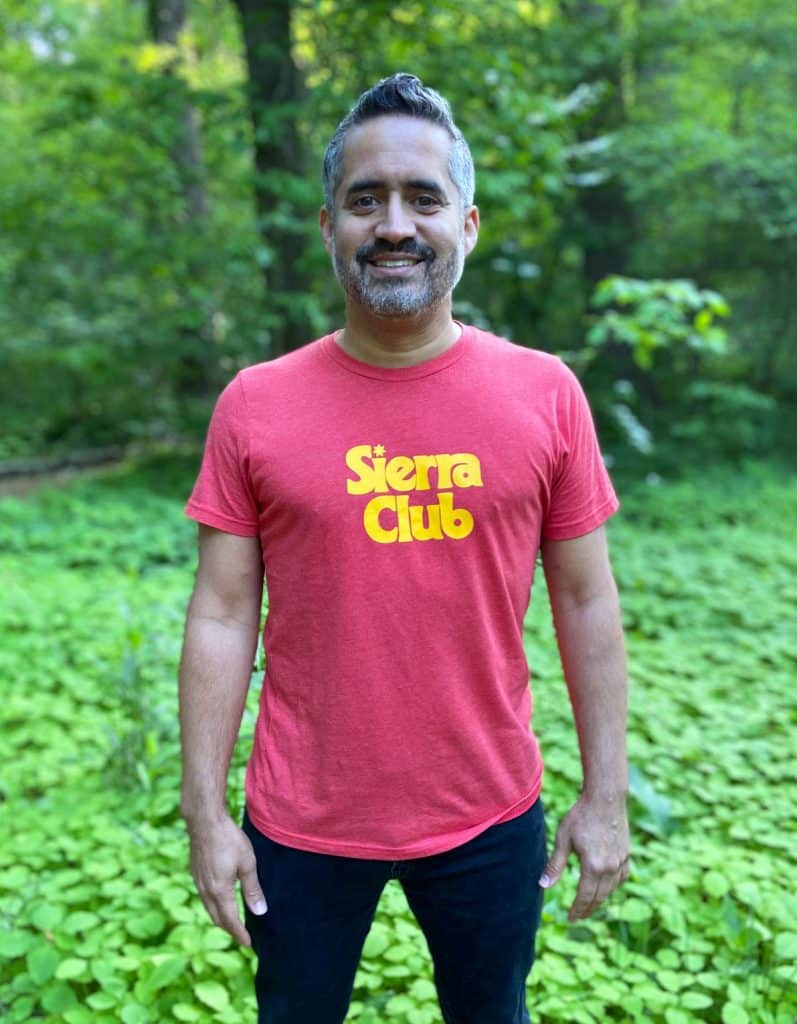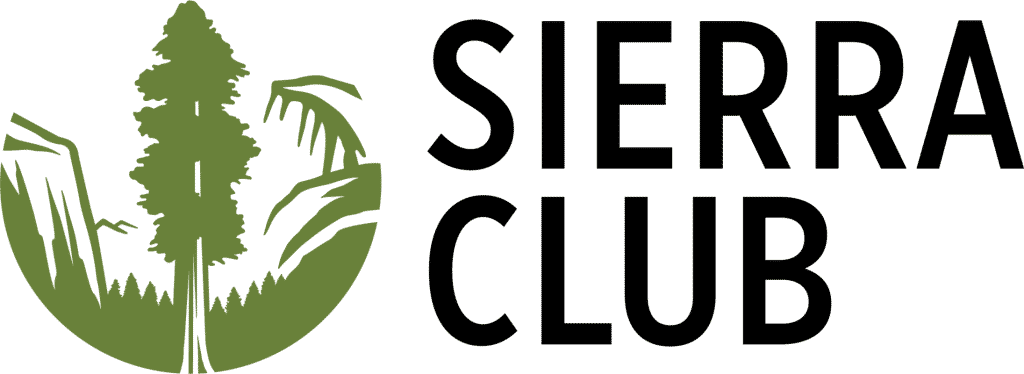BLOG / BLOG POST

Beyond Narratives: A Conversation with Ramón Cruz on Earth Day and Beyond
By Adriane Alicea
Green 2.0 Deputy Director Adriane Alicea sat down with Ramón Cruz, President of Sierra Club to discuss how narrative shifts happen in the environmental movement, being unapologetic about who you are, what inspires him about this generation of young people and how each of us can hold elected officials accountable this Earth Day.
Q: Each of us has a person or a place that ignited our passions in life. Can you tell me about that place or person who ignited your dedication to the environment?
A: It came from two exposures early on at home– nature and volunteering. My mother was a great influence instilling the importance of service to society. She also formed an “ecology club” with a focus on recycling when almost no one in Puerto Rico was doing that. Also, nature, camping and going to rural areas played a big role. Throughout my career I had great mentors that pushed me to develop further my consciousness in these exposures.
Q: What’s the moment you knew this was an issue you wanted to pursue as your life’s work?
A: A person I met while volunteering at a film festival in college, a former guerilla from Uruguay, told me how frustrated she was with her generation because many of the leaders of the movement had become corrupted. She said that if she were coming of age, she would embrace environmental activism because it was a movement without protagonists. When you think about our movement, there aren’t many icons and that is beneficial because it’s all about the cause and its goals, rather than one person.
Q: Shifting the narrative in the environmental movement so that the stories of communities of color are centered is key to transforming this work to be culturally relevant and inclusive. What does a narrative shift look like to you?
A: We must go beyond narratives. The environmental movement’s history, while bringing the important vision to preserve land for future generations, is also a history of privilege, supremacy, racism, and relocation of communities. We need to ensure that our movement benefits everyone, especially the most vulnerable. Also, going beyond the narrative implies a diversity of voices in leadership positions, which Green 2.0 has been central to, and ensuring that we have the mechanisms for that leadership to succeed. It’s not just about numbers in terms of representation but thinking about how we prepare future leaders for success.
Not all of us had the same starting points. Many of us grow up doubting ourselves. Even though I speak four languages or had a top education, when I enter a board room with majority white males, there are insecurities that play in, making me walk on eggshells. We must go beyond the narrative to ensure that future BIPOC leaders don’t have to ever question themselves.
Q: You’ve discussed how your activism to stop the US Navy from using Vieques as a bombing range showed you how dominant culture and people see communities of color as disposable. Can you discuss that notion?
A: We live in a society with pervasive [economic] practices that do not work and need intervention. The Sierra Club has been so emphatic on that lately, with a great piece by Hop Hopkins on how racism is killing the planet. Out of this racial reckoning that had already started at Sierra Club, but especially last year after the murder of George Floyd came [an examination of] our own history as the Sierra Club. There was a lot of push back from traditional members that see themselves as environmentalists, but don’t see environmentalism as being related to other social issues—and they don’t think Sierra Club should be involved. We’re not going to be able to fulfill our goal of saving the planet if we’re okay with sacrificing people. The people in places that we sacrifice become disposable and you cannot have disposable people unless you have an ideology based in supremacy and racism.
Q: How does this notion of disposableness come to play when we talk about Puerto Rico’s relationship to the US?
A: In Puerto Rico, the concept of disposableness is exacerbated because of our colonial relationship with the United States. It has been a poster child of how things can go wrong when bad things align in terms of not having political power and being in economic crisis from a system that perpetuated these ills. Right now, we have the privatization of an electric system that failed during Hurricane Maria instead of switching to a decentralized system based on renewable energy. Additionally, the colonial status doesn’t allow Puerto Rico to trade freely and that has done great harm because we don’t have the capacity to develop our economy in the face of a disaster like Maria. Puerto Rico has now become a tax haven for the privileged that do not want to contribute to society. These are parasites that are moving in and buying off a lot of real estate without contributing to society. This notion of a sacrificed place has many dimensions.
Q: You’re a part of the first but not the last club. What advice do you have for young BIPOC who are interested in pursuing or learning more about environmental advocacy?
A: This generation are mentors to my generation. My generation has failed them. They are so assertive, eloquent, and know the facts…the only advice I would give is that there is no such thing as a self-made person. They should be aware of their privileges, and to know that you are no more than anyone else because you may have knowledge, money, or power. The important part is how you [those things] in service of more people. For young BIPOC, I would say don’t be apologetic. When I went to Princeton for graduate school, there were a lot of legacy students, and peers would say I was only in school because of affirmative action. There’s dysfunction when no one is saying well actually your ancestors enslaved my ancestors…I’m not apologetic about saying that. Develop the confidence to maximize your potential.
Q: Earth Day is ultimately about both celebrating and action. What are some key things that people can do every day to reflect on their own actions when it comes to environmental justice?
A: We have a once in a generation opportunity to work with an Administration that has put climate on top of the agenda together with infrastructure and justice, and we have basically 1 year to make this happen. The most important thing people can do this Earth Day is getting involved locally and nationally and be sure your elected officials are held accountable to this agenda.

To learn more about Sierra Club, visit sierraclub.org and follow @SierraClub on Facebook, Twitter, and Instagram.
To learn more about Ramón Cruz, follow Ramón on Twitter at @RamonCruzDiaz, on Instagram at @ramon.j.cruz, and on LinkedIn.
